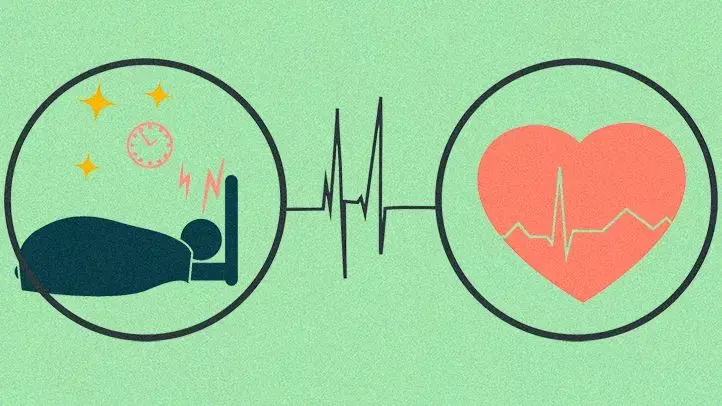- Home
- Medical news & Guidelines
- Anesthesiology
- Cardiology and CTVS
- Critical Care
- Dentistry
- Dermatology
- Diabetes and Endocrinology
- ENT
- Gastroenterology
- Medicine
- Nephrology
- Neurology
- Obstretics-Gynaecology
- Oncology
- Ophthalmology
- Orthopaedics
- Pediatrics-Neonatology
- Psychiatry
- Pulmonology
- Radiology
- Surgery
- Urology
- Laboratory Medicine
- Diet
- Nursing
- Paramedical
- Physiotherapy
- Health news
- Fact Check
- Bone Health Fact Check
- Brain Health Fact Check
- Cancer Related Fact Check
- Child Care Fact Check
- Dental and oral health fact check
- Diabetes and metabolic health fact check
- Diet and Nutrition Fact Check
- Eye and ENT Care Fact Check
- Fitness fact check
- Gut health fact check
- Heart health fact check
- Kidney health fact check
- Medical education fact check
- Men's health fact check
- Respiratory fact check
- Skin and hair care fact check
- Vaccine and Immunization fact check
- Women's health fact check
- AYUSH
- State News
- Andaman and Nicobar Islands
- Andhra Pradesh
- Arunachal Pradesh
- Assam
- Bihar
- Chandigarh
- Chattisgarh
- Dadra and Nagar Haveli
- Daman and Diu
- Delhi
- Goa
- Gujarat
- Haryana
- Himachal Pradesh
- Jammu & Kashmir
- Jharkhand
- Karnataka
- Kerala
- Ladakh
- Lakshadweep
- Madhya Pradesh
- Maharashtra
- Manipur
- Meghalaya
- Mizoram
- Nagaland
- Odisha
- Puducherry
- Punjab
- Rajasthan
- Sikkim
- Tamil Nadu
- Telangana
- Tripura
- Uttar Pradesh
- Uttrakhand
- West Bengal
- Medical Education
- Industry
Excessive Sleeping in sleep apnea patients linked to CV Mortality in Hispanic population

Obstructive sleep apnea (OSA) is a common, chronic condition associated with multiple adverse outcomes, with increased prevalence concomitant with increasing obesity rates. In a study, the researchers have reported that excessive sleepiness increases the risk of incident cardiovascular mortality in the Hispanic population with moderate to severe OSA (msOSA).
The study findings were published in the CHEST Journal.
Studies have demonstrated a strong association between sleepiness-related symptoms and comorbidities with poor cardiovascular outcomes among patients with msOSA. However, the validation of these associations in the Hispanic population from South America and the ability to predict incident cardiovascular disease remains unclear. Therefore, Dr Gonzalo Labarca and his team conducted a study to explore different approaches in a cohort of patients with moderate to severe OSA from a sleep clinic based in Santiago, Chile.
Using the SantOSA cohort, the researchers reproduced four cluster analyses following a cluster analysis similar to each training dataset. The four cluster analyses were:
• Sleep Heart Health Study [SHHS],
• Icelandic Sleep Apnea Cohort [ISAC],
• Sleep Apnea Cardiovascular Endpoints [SAVE], and
• The Institute de Recherche en Sante Respiratoire des Pays de la Loire [IRSR] cohorts.
They evaluated the incidence of cardiovascular mortality using a Kaplan-Meier (log-rank) model and Cox proportional hazards models by adjusting the confounders.
Key findings of the study:
- Among 780 patients with msOSA, the researchers were able to reproduce two previous cluster analyses (SHHS and ISAC) but not with SAVE and IRSR cluster analyses.
- They identified the following subtypes for SHHS: "minimally symptomatic," "disturbed sleep," "moderate sleepiness," and "severe sleepiness."
- In ISAC, they noted three different subtypes ("minimally symptomatic," "disturbed sleep," and "excessive sleepiness") were similar to the original dataset.
- In the SantOSA cohort, they found a significant association between excessive sleepiness and incident CV mortality after 5 follow-up years using the Sleep Heart Health Study (HR= 5.47) and the Icelandic Sleep Apnea Cohort (HR = 3.23) cluster analyses.
The authors concluded, "Among patients with msOSA, a symptom-based approach can validate different OSA patient subtypes, and those with excessive sleepiness have an increased risk of incident cardiovascular mortality in the Hispanic population from South America."
For further information:
DOI: https://doi.org/10.1016/j.chest.2021.06.047
Medical Dialogues Bureau consists of a team of passionate medical/scientific writers, led by doctors and healthcare researchers. Our team efforts to bring you updated and timely news about the important happenings of the medical and healthcare sector. Our editorial team can be reached at editorial@medicaldialogues.in.
Dr Kamal Kant Kohli-MBBS, DTCD- a chest specialist with more than 30 years of practice and a flair for writing clinical articles, Dr Kamal Kant Kohli joined Medical Dialogues as a Chief Editor of Medical News. Besides writing articles, as an editor, he proofreads and verifies all the medical content published on Medical Dialogues including those coming from journals, studies,medical conferences,guidelines etc. Email: drkohli@medicaldialogues.in. Contact no. 011-43720751


